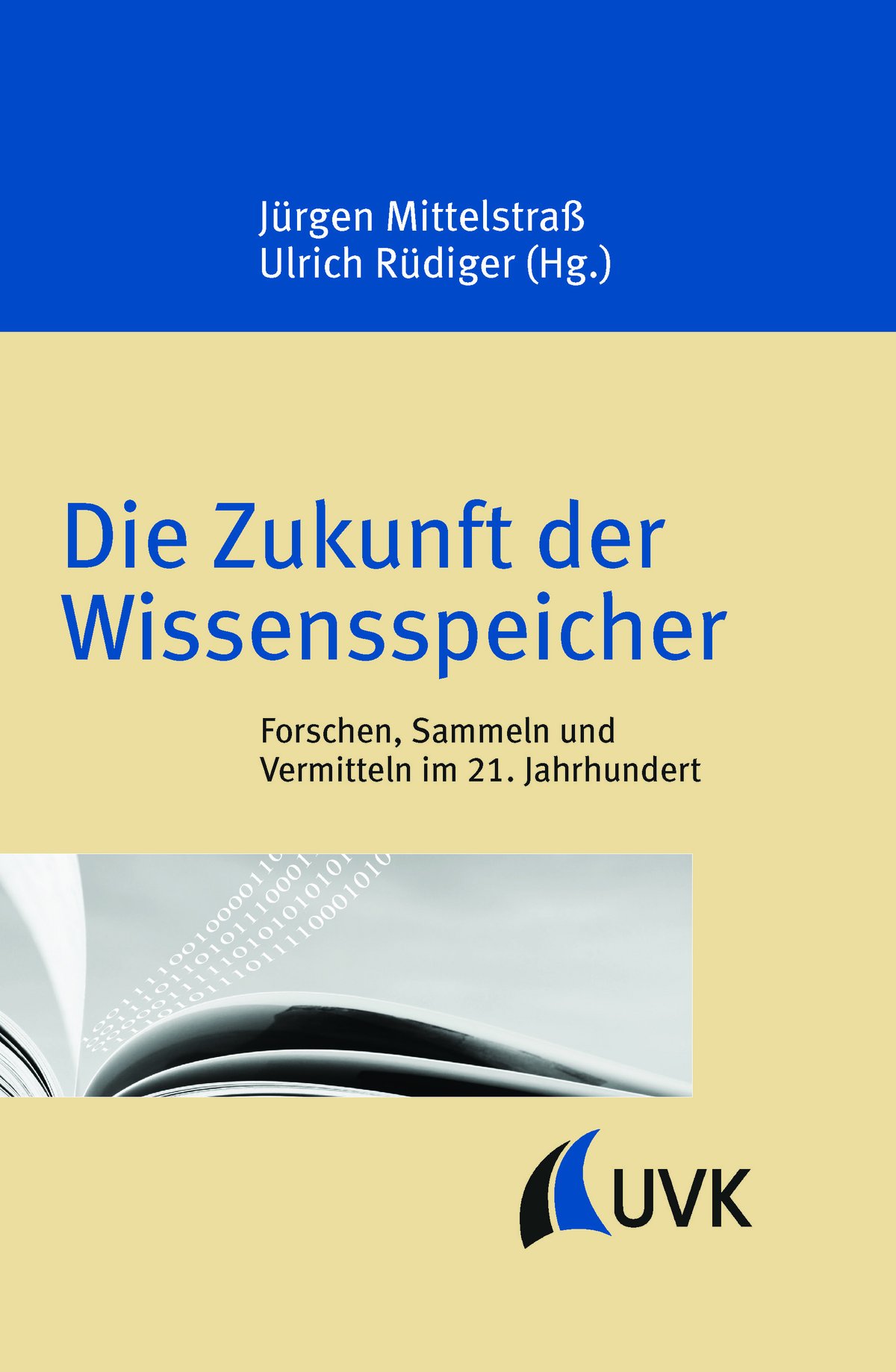
The future of knowledge repositories: researching, collecting and teaching in the 21st century
Jürgen Mittelstraß/Ulrich Rüdiger (eds)
Konstanzer Wissenschaftsforum Volume 7, Universitätsverlag Konstanz, Konstanz 2016
ISBN 978-3-86764-716-8 | 32.00 €
During the last decade, the way we produce and handle knowledge as well as the relationship between knowledge and information have been subject to major changes due to digitisation and changing societal expectations. All institutions dealing with “the resource knowledge” are affected by these changes, especially universities, research facilities, archives, libraries and museums. Various areas need to be restructured to be able to meet the new the challenges posed by digital and global user requirements and increasing information density. However, it is not only institutions that are affected. Our intellectual culture, our understanding of knowledge and our knowledge systems are also subject to fundamental changes.
The discussion touches on various complex issues relevant to diverse areas including cultural-theoretical and technical ones, posing the following questions: What will our knowledge repositories look like in the future? How do we want to and how will we research, teach and preserve? The seventh conference proceedings of the Konstanz Science Forum seek to address these and other questions.

Power and science. Holy alliances and precarious conditions
Jürgen Mittelstraß/Ulrich Rüdiger (eds)
Konstanzer Wissenschaftsforum Volume 6, Universitätsverlag Konstanz, Konstanz 2013, 125 pages
ISBN 978-3-87940-839-9 | 24.00 €
The relationship between science and power has always been multi-faceted and complex. What impact do Excellence Initiative, Bologna reforms, think tanks and “globalising” research have on this relationship and how will it develop in response to the profound structural changes to the science and research system that are happening in the 21st century? What kinds of mutual dependencies and expectations are shaping it today? Which structures enable or limit research? How about the power relations within science itself?
The sixth conferences proceedings of the Konstanz Science Forum address these and other issues, asking us to re-think the relationship between science and (political) power, responsibility and influence.
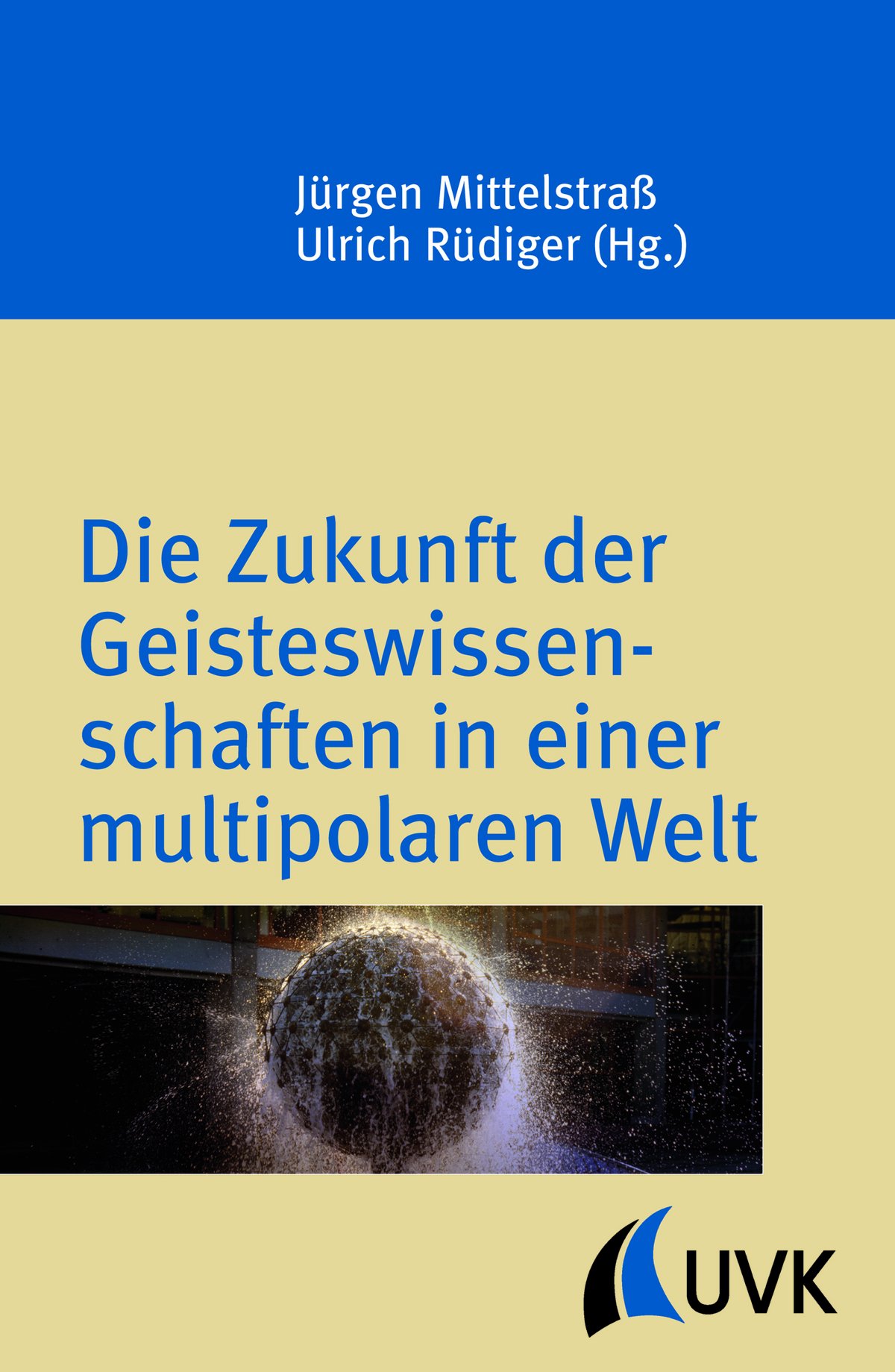
The future of the humanities in a multi-polar world
Jürgen Mittelstraß/Ulrich Rüdiger (eds)
Konstanzer Wissenschaftsforum Volume 5, Universitätsverlag Konstanz, Konstanz 2012, 111 pages
ISBN 978-3-87940-831-3 | 24.00 €
The humanities have complained of being marginalised for some time. Indeed, perceptions of science in general and “the humanities” in particular are increasingly shaped by economic factors, which puts the onus of justification on the humanities. There is every reason to ask: What role do the humanities play in 21st-century society, which is dominated by cultural and social change? How important are they to modern information society? International researchers and representatives from politics and the media discuss the responsibilities and potential of the humanities in a multi-polar world.
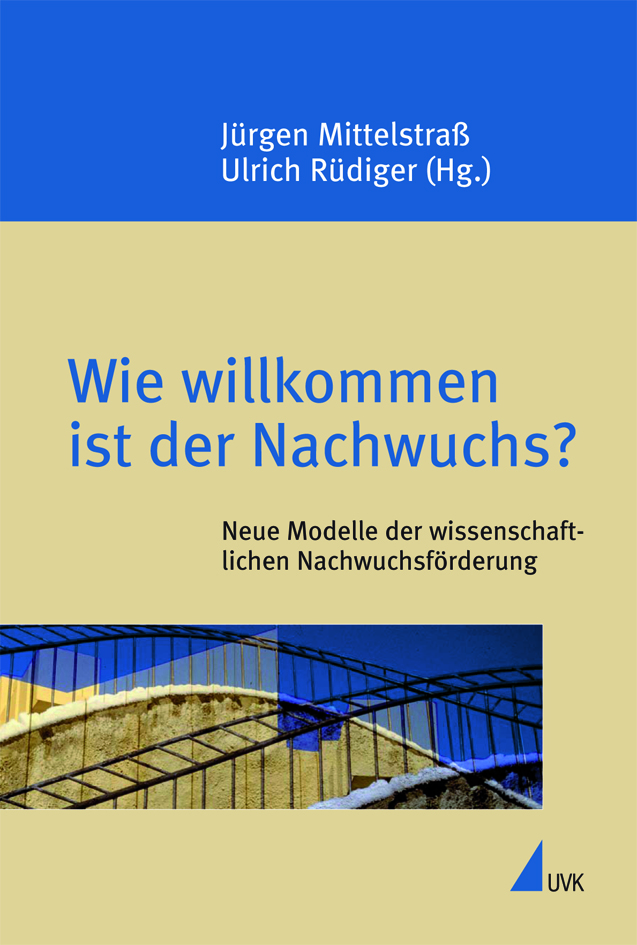
How welcome is the next generation of scientists? New concepts for promoting early career researchers
Jürgen Mittelstraß/Ulrich Rüdiger (eds)
Konstanzer Wissenschaftsforum Volume 4, Universitätsverlag Konstanz, Konstanz 2011, 180 pages
ISBN 978-3-87940-830-6 | 29.00 €
The European science and research system is changing. This particularly affects the next generation of scientists: Graduate schools and individual researchers’ integration into joint research projects are replacing the old academic model of “solitude and freedom”. Junior professorships and excellence concepts are harnessed to encourage researchers to achieve independence early on.
The following holds true: Our information society must work hard to promote early career researchers. But what should their education - leading up to a doctorate and beyond - look like? What concepts and ideas are there in Germany and abroad? How do careers progress and in what areas do we need to support our early career researchers? The fourth conference proceedings of the Konstanz Science Forum address these and other questions.
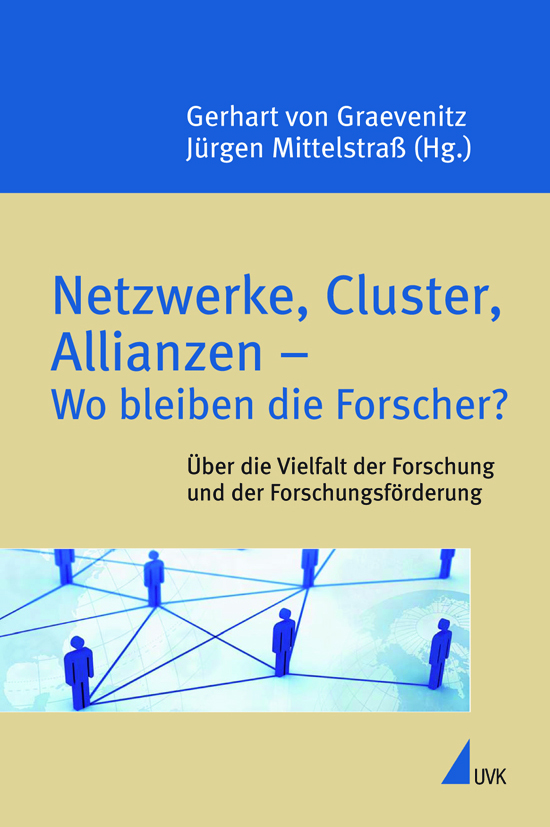
Networks, clusters, alliances - What's happening to our researchers? About diversity in research and research support
Gerhart von Graevenitz/Jürgen Mittelstraß (eds)
Konstanzer Wissenschaftsforum Volume 3, Universitätsverlag Konstanz, Konstanz 2011, 208 pages
ISBN 978-3-87940-827-6 | 29.00 €
The modern academic environment, especially in Europe, is characterised by a high degree of cross-linkage and organisation into large networks ranging from the classic collaborative research centre to university clusters and research centres. Terms such as “critical size” or “critical mass” play an important role, also and especially as regards the allocation of research funding.
How do individual researchers fit into this system? Would there be room for outstanding thinkers like Albert Einstein or Max Weber? The third conference proceedings of the Konstanz Science Forum address these and other questions.

Project Europe. Legal, scientific and cultural-political aspects
Gerhart von Graevenitz/Jürgen Mittelstraß (eds)
Konstanzer Wissenschaftsforum Volume 2, Universitätsverlag Konstanz, Konstanz 2009, 186 pages
ISBN 978-3-87940-817-7 | 29.00 €
Not long ago, Europe celebrated its 50th birthday. Europe - who celebrates whom or what?
Is Europe a unified structure whose citizens feel, think and act in a European manner? Does the rejection of a European constitution not imply that fewer people share the European idea?
In addition to politicians, scientists too are called upon to ensure the success of the European project and to help create a new European identity.
The second conference proceedings of the Konstanz Science Forum seek to provide intellectual tools for achieving this goal.
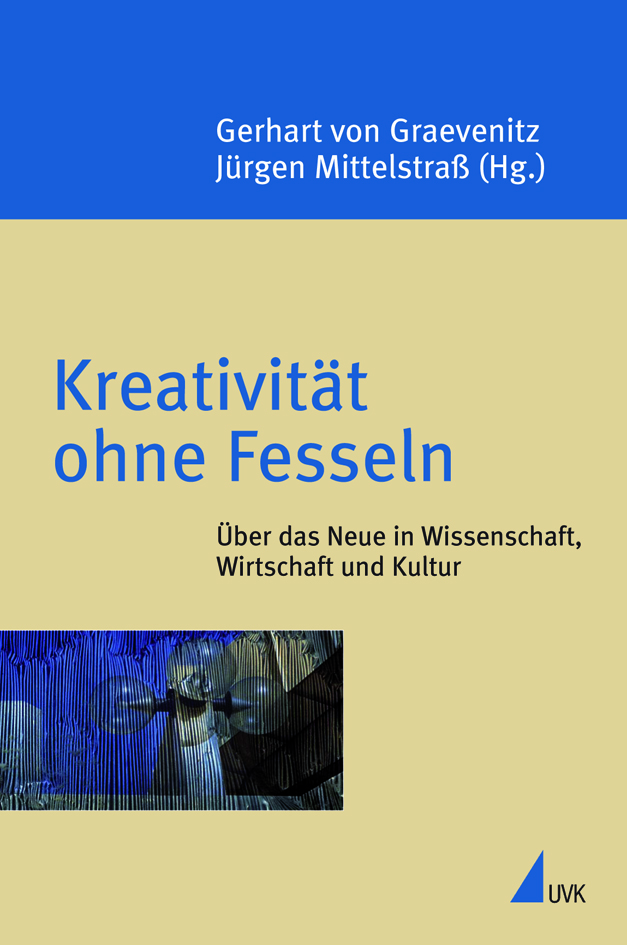
Creativity unchained. About the new in science, business and culture
Gerhart von Graevenitz/Jürgen Mittelstraß (eds)
Konstanzer Wissenschaftsforum Volume 1, Universitätsverlag Konstanz, Konstanz 2008, 200 pages
ISBN 978-3-87940-814-6 | 29.00 €
Creativity is an omnipresent issue in science, business and politics. Whenever competition and innovation are invoked in the name of social progress, it is really creativity and the promotion thereof that people are concerned with. Often, it remains unclear what kind of innovation is needed and how creativity can help achieve it. The first conference proceedings of the Konstanz Science Forum seek to clarify this concept of creativity from disciplinary and cross-disciplinary perspectives.

Religious diversity and dealing with minorities. Experiences from past and present
Dorothea Weltecke/Ulrich Gotter/Ulrich Rüdiger (eds)
Universitätsverlag Konstanz, Konstanz 2014, 165 pages
ISBN 978-3-86764-536-2 | 29.00 €
Religious minorities often seem to pose a challenge to contemporary political and cultural actions. However, multireligious spaces were of the norm in the past. Religious diversity has evolved over centuries, fuelled by migration, proselytising or as a consequence of conquest. We need to ask fundamental questions about what “religious minorities” really are and how they behave in their religious environments: How are religious minorities treated and how do they, in turn, treat the members of the majority religion?
This book discusses the positions adopted by religious minorities from the perspectives of various disciplines across time and space, offering new impulses for thinking about this complex and highly relevant topic.

Additional publications
Brochure
Integration by signature? The expediency of integration agreements in migration law
Since April 2011, integration agreements have been tested in 18 municipalities and districts across Germany as part of a pilot project, with Freiburg and Stuttgart participating on behalf of Baden-Württemberg. Integration agreements have existed for some time in Switzerland and in Austria.
On 27 and 28 October 2011, a workshop around this topic took place at Schloss Salem. The lectures and discussions have revealed a large variety of ideas and concepts hiding behind the term. You can find the speakers’ lectures and thoughts on the topic in the brochure “Integration by signature? The expediency of integration agreements in migration law”.
